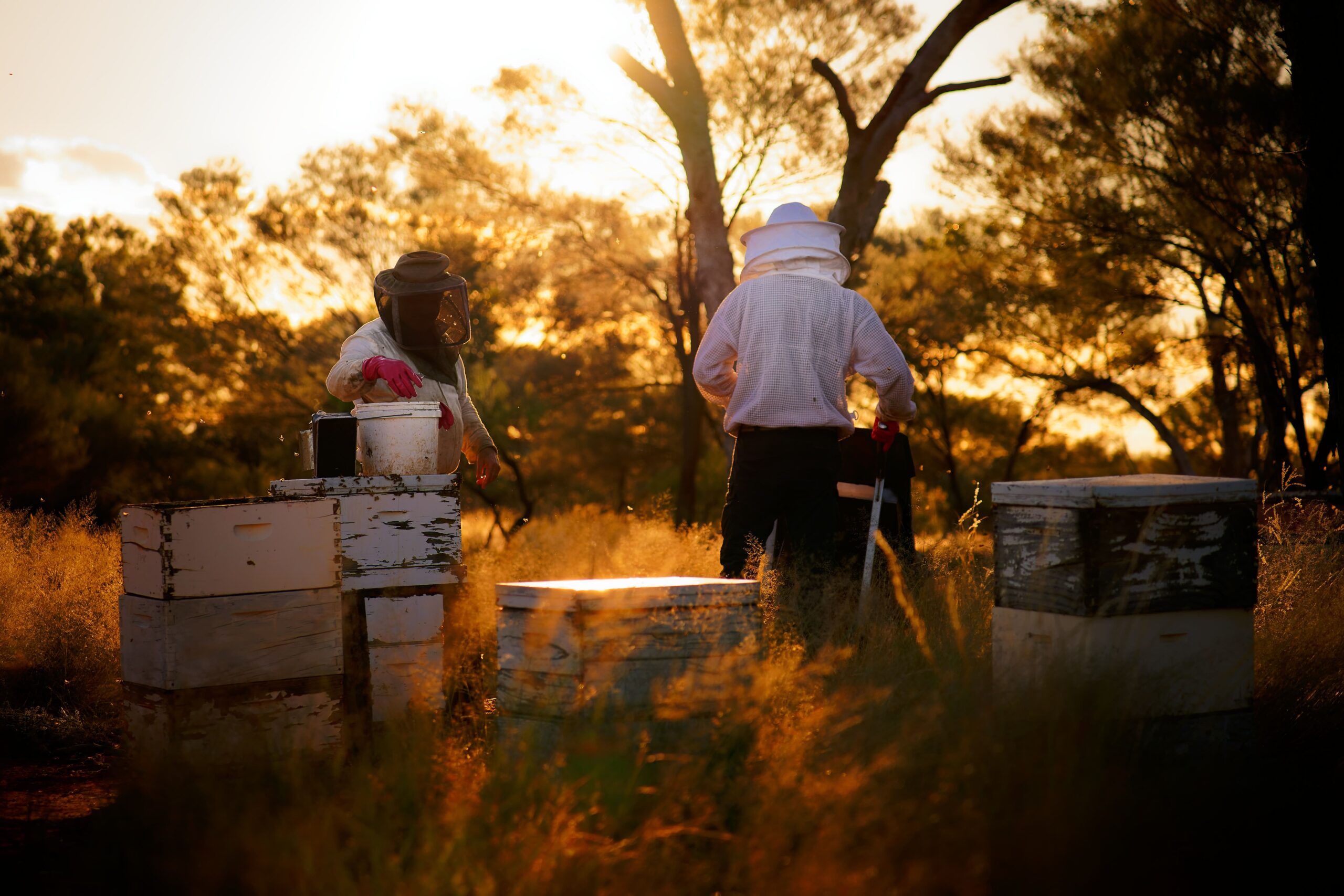The Silent Collapse: When Pollinators Disappear
A world without bees is a terrifying thought: quiet fields, empty fruit trees, and a shrinking variety of foods on our tables. This is not a far-off scenario. It’s happening right now.
Bees are in trouble, and so are we. We are facing a potential collapse of the natural systems that have sustained human civilization. Habitat destruction, pesticide use, disease and climate change are pushing bees to the brink. Over 40% of pollinator species are at risk of extinction (FAO, 2018), and the biodiversity and global food security we depend on are at stake. Without bees, the crops we rely on, fruits, vegetables, nuts, seeds, could disappear from our plates. According to research, about one-third of the world’s food production depends on pollinators like bees (FAO, 2018), underlining how crucial their survival is for our food systems.
This is the crisis we’re facing: If we don’t act, we risk losing the bees forever. And when they go, so does so much of life as we know it.
Bee Pollen: Where Origin, Quality, and Human Health Converge
You have the power to make a direct impact, and it starts with your choice of bee pollen.
Bee pollen isn’t just a superfood; it’s a symbol of sustainability. Packed with essential vitamins, minerals, and antioxidants, bee pollen is nature’s multivitamin, providing a range of benefits from boosting immunity to improving skin health, cardiovascular health and providing a natural, sustained energy boost. It’s one of the most nutrient-dense superfoods on the planet, offering everything you need to support your health and wellbeing.
Here’s the catch: Not all bee pollen is created equal. The quality of the pollen you buy depends directly on the health of the bees that produce it. By choosing to support sustainable bee pollen brands, you’re directly contributing to the survival of pollinators and ensuring that future generations will continue to benefit from these incredible creatures. Studies show that ethical sourcing of bee products can directly support bee-friendly farming practices (Bengtsson et al., 2005), which are vital for preserving pollinator populations.
Make Your Choices Count. Supporting Ethical Companies is Key To Saving the Bees
Make Your Choices Count. Supporting Ethical Companies is Key To Saving the Bees

The Power of Supporting Ethical Beekeeping
When you buy bee pollen, you’re not just making a purchase, you’re supporting a sustainable future for bees. Companies that prioritize ethical, bee-friendly practices play a critical role in protecting bee populations and ensuring that bees continue to thrive in their natural environments.
These companies use eco-friendly beekeeping practices that reduce harm to bees and help create healthy habitats. They choose pollinator-friendly farming methods, avoid harmful pesticides, and ensure their bees have access to abundant, clean sources of nectar and pollen. The choices you make as a consumer directly affect the demand for sustainable bee products. In fact, a report by the FAO found that companies adopting bee-friendly practices significantly increase pollinator health and preserve biodiversity (FAO, 2018).
By choosing brands that care about ethical sourcing and sustainable beekeeping, you’re helping ensure that bees stay healthy, continue to pollinate crops, and support our planet’s ecosystems. Your purchase sends a message to the industry: Support sustainable practices. Help save the bees.
Ripples of Impact: Your Choices Matter
The great news is your purchase has power.
When you choose to buy from brands committed to sustainability, you’re joining a growing movement. Your decision has a ripple effect that encourages businesses to adopt better practices. Every time you choose to buy responsible, ethically sourced bee pollen, you’re helping to create a marketplace where bees thrive and sustainable beekeeping becomes the norm.
Think about it, your purchase could inspire other consumers to make the same choice, ultimately shaping the industry and making it easier for other people to support sustainable, ethical brands. You’re part of a larger solution. Small actions like buying sustainable bee pollen, add up and make a world of difference. In fact, studies indicate that when consumers demand eco-friendly products, industries adapt to meet that demand, creating a positive cycle of sustainability (Kremen et al., 2004).
How You Can Take Action Today
The time to act is now. Here’s how you can make a difference:
- Choose sustainable brands: Look for companies that prioritize ethical sourcing and bee-friendly farming. Your purchase has the power to shape the future.
- Advocate for sustainable policies: Support laws that promote bee-friendly agriculture and reduce harmful pesticide use. Your voice can influence change.
- Plant bee-friendly gardens: Create safe spaces for bees at home. Plant native flowers and reduce pesticide use to help local pollinators thrive.
- Spread awareness: Educate your community about the importance of bee health and sustainable agriculture. The more people who know, the more change we can make together.
- Support bee conservation efforts: Get involved with organizations working to protect bees and their habitats.
Make Your Choices Count. Support Ethical Brands That Are Committed to Saving the Bees.
Make Your Choices Count. Support Ethical Brands That Are Committed to Saving the Bees.
Scientific References:
- FAO (2018). “The Importance of Pollinators in Agriculture.” Food and Agriculture Organization of the United Nations.
- Kremen, C., et al. (2004). “Pollination and Crop Yields.” Proceedings of the Royal Society B: Biological Sciences, 271(1554), 1085-1090.
- Bengtsson, J., et al. (2005). “The Influence of Organic Farming on Biodiversity.” Environmental Health Perspectives, 113(1), 69-74.
Affiliate Information
The Australian Bee Conservation Society may receive a small commission from purchases made through affiliate links on this page, at no additional cost to you. These commissions help support our mission to provide accessible, research-backed information and resources on bee conservation, sustainable agriculture, and pollinator-friendly practices.
Our goal is to increase awareness and inspire actionable solutions that protect bee populations and promote biodiversity. By using these affiliate links, you’re directly supporting our efforts to safeguard ecosystems, preserve natural resources, and secure food security for future generations.
Thank you for helping us build a more sustainable and bee-friendly world.



